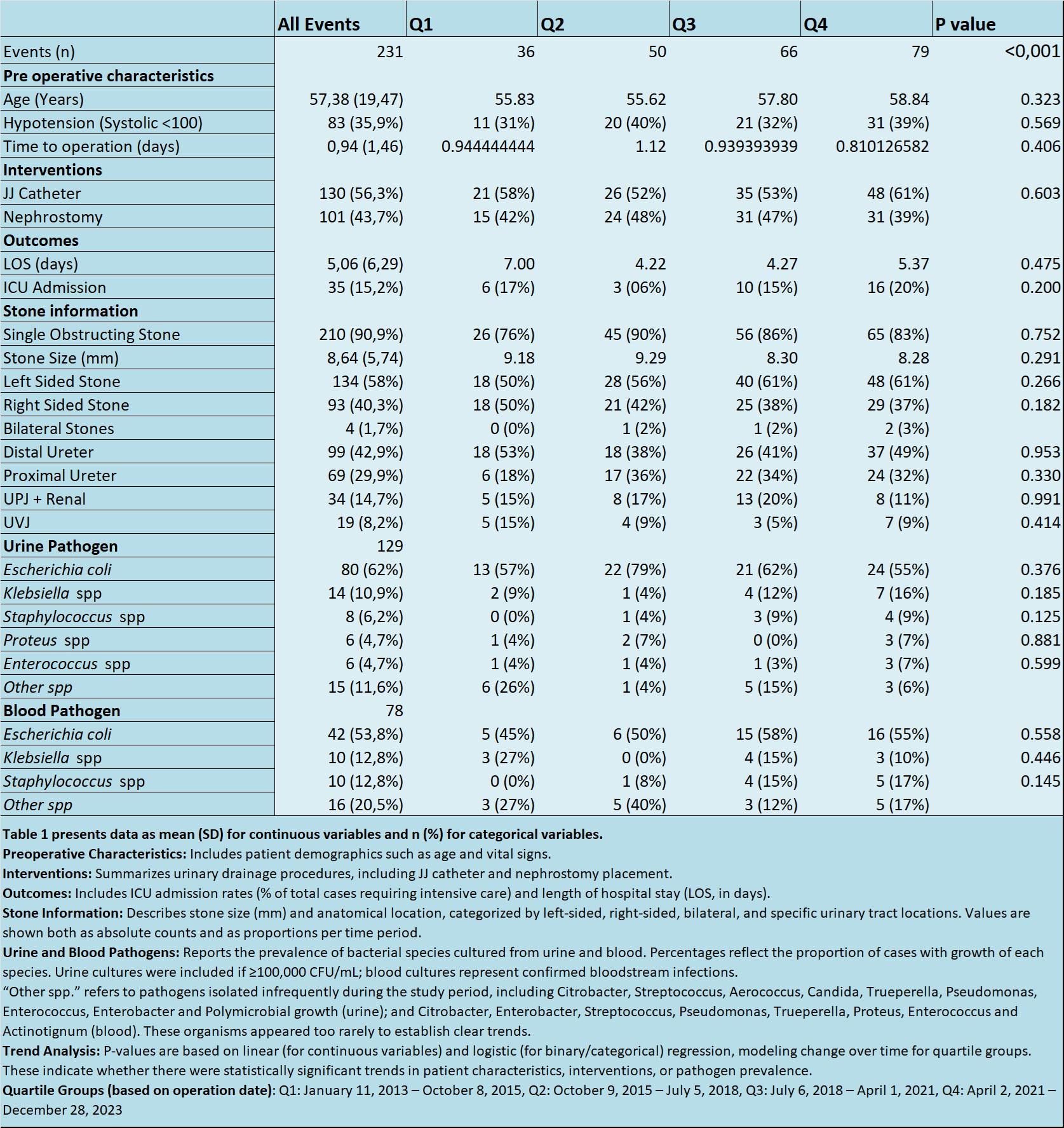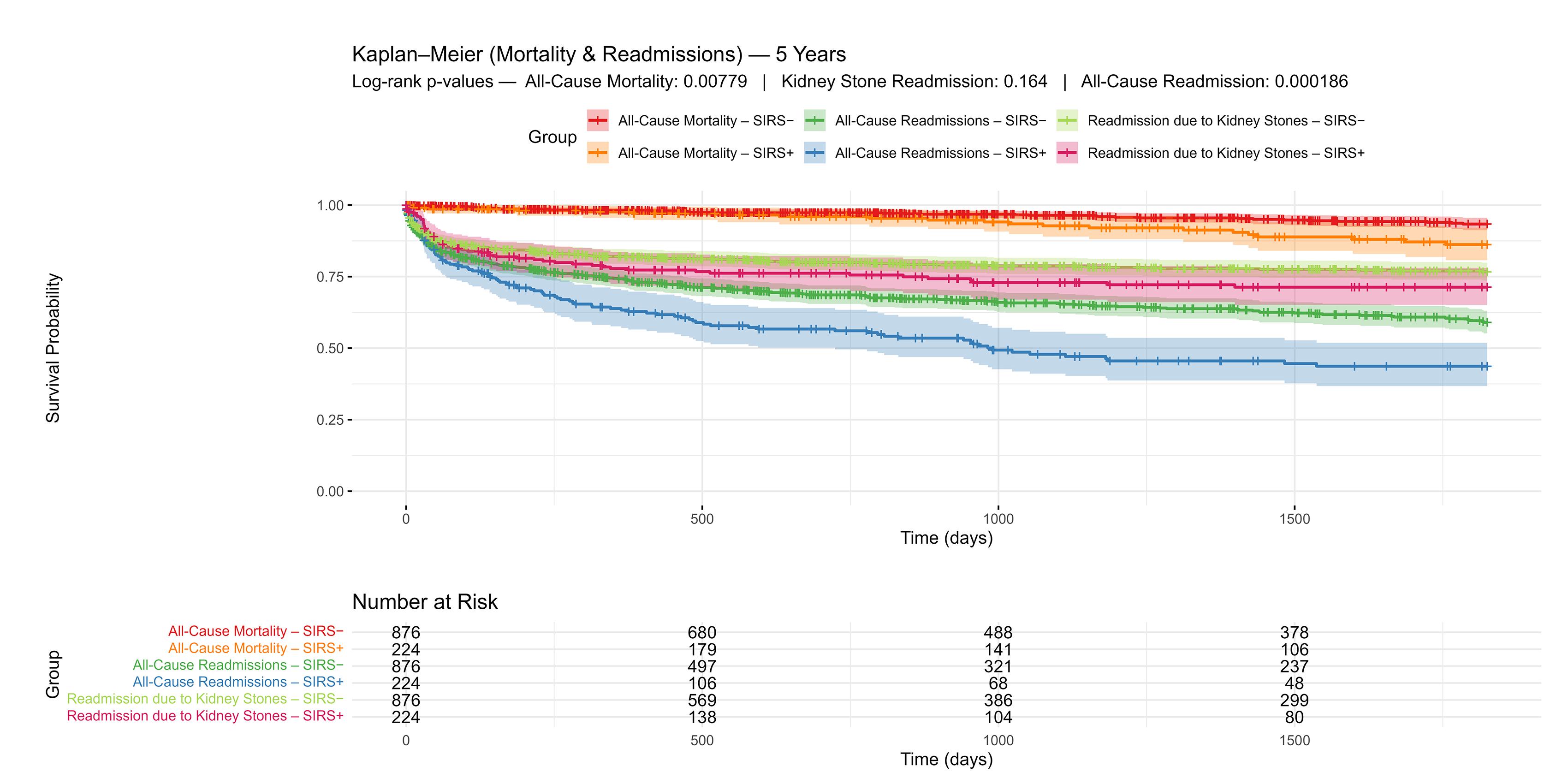Back to 2025 Abstracts
Infected Kidney Stone Interventions in Iceland: A Nationwide Retrospective Analysis of Escalating Incidence, Microbiology, and Long-Term Outcomes (2013-2023)
Edward Rumba, BSc.1, Johann P. Ingimarsson, MD.
2.
1University of Iceland, Reykjavík, Iceland,
2Landspitali – The National University Hospital of Iceland, Reykjavík, Iceland.
Introduction: Longer-term clinical outcomes of infected kidney stones remain poorly studied. This study examined national trends, microbiology and longer-term outcomes of infected stone interventions in Iceland (2013-2023).
Methods: Data were collected from all urgent nephrostomy and JJ stent insertions for kidney stones at all hospitals in Iceland. Manual chart review of 1,595 cases identified 231 (14.5%) with systemic inflammatory response syndrome (SIRS) pre-intervention. Clinical and microbiological characteristics were described, and survival was analyzed using Kaplan-Meier methods.
Results: Urgent decompression procedures increased 181% over the study period (81 to 228/year). SIRS-related incidence rose 347% from 2.53 to 8.79 per 100,000 persons/year (p=0.003). Among SIRS patients no trends over time were observed in age, stone size, time to intervention, or length of stay.
Escherichia coli was the leading pathogen (urine: 62%, blood: 53.8%). ICU admission was required in 15.2% of SIRS cases.
Mean follow-up was 1,235 days. There was no significant difference in 1-year (p = 0.58) or 3-year mortality (p = 0.054), but survival was worse at 5 years (p = 0.008) and full follow-up (p = 0.0002). All-cause readmission was higher at 1 year (p = 0.0052), 5 years (p = 0.00019), and full follow-up (p = 0.0003) in the SIRS group, while stone-specific readmissions did not differ (p > 0.09).
Conclusion: Infected stone interventions increased >300%. Despite good short-term outcomes, long-term healthcare burden was significantly greater. Higher all-cause, but not stone-specific readmission in the SIRS group, suggests greater comorbidity in that group, potentially affecting survival differences.


Back to 2025 Abstracts

